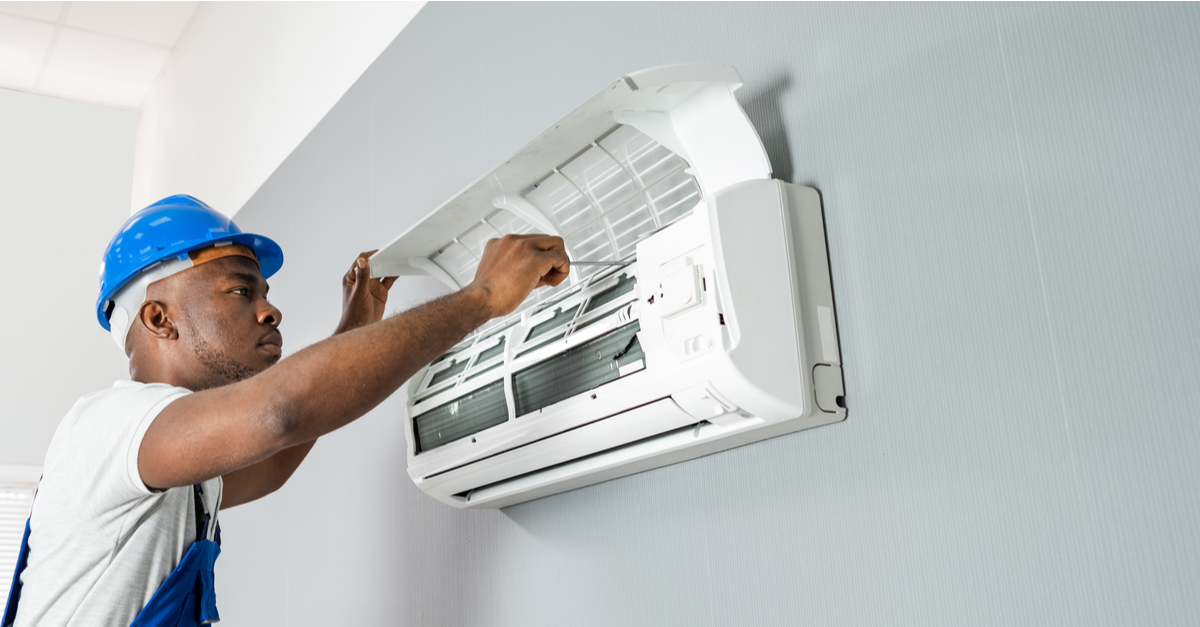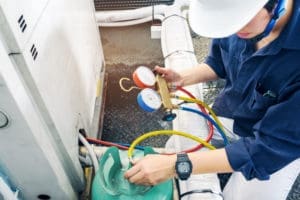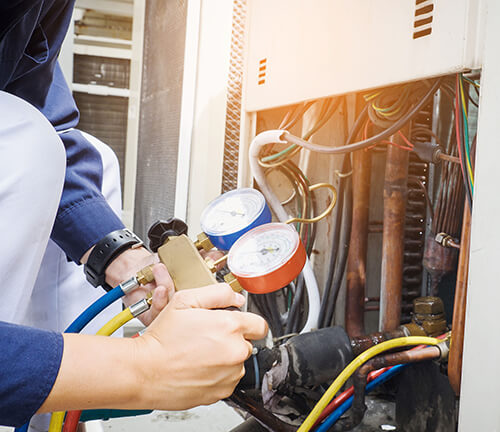Recognizing A/c: A Comprehensive Overview to Heating, Ventilation, and Cooling Services
In today's quickly developing globe, a basic understanding of a/c systems is no much longer a deluxe but a requirement for ensuring ideal interior settings. This overview offers a detailed expedition of heating, air, and air flow conditioning solutions, demystifying the complicated interaction of components that govern comfort and effectiveness. As we navigate with the complexities of selecting the ideal system and maintaining it for peak performance, one starts to recognize the extensive influence these systems carry power usage and sustainability. What usual pitfalls could be weakening your heating and cooling system's capacity without your understanding?
Basics of HVAC Systems
Heating, Air Flow, and Cooling (HVAC) systems are essential components in modern architecture, continually guaranteeing optimum interior air top quality and thermal convenience. These systems are indispensable to keeping the wellness, efficiency, and wellness of passengers in household, industrial, and commercial settings. At their core, HVAC systems are created to regulate the temperature, moisture, and tidiness of air, developing a comfortable setting despite outside climate condition.
The fundamental elements of a HVAC system include home heating systems, air flow ducts, and cooling devices. The burner commonly includes either a heat or a heating system pump, which warms air to be distributed throughout the structure. Ventilation, a vital facet of the system, includes the exchange of exterior and indoor air, managing and decreasing interior contaminants moisture levels. This procedure can be normally or mechanically facilitated, usually using followers and ductwork to distribute air effectively.

Choosing the Right Heating And Cooling System
Choosing an A/c system entails a careful balance of cost, suitability, and effectiveness to the specific needs of a structure. It is crucial to consider the climate of the area, as this will affect the type of system that finest keeps comfortable interior temperature levels throughout the year.
Power effectiveness rankings, such as SEER (Seasonal Power Efficiency Proportion) for air conditioners and AFUE (Annual Gas Utilization Efficiency) for heaters, are important factors when evaluating possible systems. Greater scores normally show better efficiency and reduced operating expense over time. Furthermore, possible purchasers need to contrast upfront costs with potential long-term cost savings to figure out the finest monetary alternative.
Another key factor to consider is the sort of system-- whether a central system, split system, or ductless mini-split is suitable. Each offers unique advantages and limitations, depending on installation complexity and room demands. Consultation with heating and cooling experts is recommended to guarantee that the system picked straightens with both the structure's specs and the passengers' convenience preferences.
Significance of Routine Upkeep
When the ideal a/c system is picked and set up, keeping its performance and longevity ends up being a priority. Regular maintenance is vital for ensuring that the system runs at peak performance, minimizing the threat of unforeseen failures. Regular inspections and servicing can identify prospective concerns prior to they rise into expensive repair services or replacements, thereby expanding the lifespan of the devices.

Moreover, adhering to a maintenance schedule can protect the warranty coverage, as several manufacturers require evidence of routine maintenance to recognize service warranty claims. Engaging specialist heating and cooling specialists for regular maintenance guarantees that all components are assessed precisely and changed as required. This proactive approach not just safeguards the financial investment in the HVAC system yet likewise advertises a much healthier indoor environment for passengers, improving overall well-being.
Enhancing Energy Efficiency
To enhance power effectiveness in heating and cooling systems, it is critical to implement methods that minimize power usage while maintaining optimum efficiency. One effective method is the assimilation of clever thermostats, which enable specific control over temperature setups based upon tenancy and time of day. These tools can find out patterns and change heating and cooling schedules as necessary, reducing unneeded energy use.
An additional strategy includes normal examination and cleaning of heating and cooling elements, such as air filters, coils, and ductwork. Clean systems run more effectively, as dust and debris can block anonymous airflow and compel the system to function harder, eating more power. Making sure appropriate insulation and securing is also important, as it avoids energy loss and minimizes the lots on a/c systems.
Moreover, updating to energy-efficient devices, such as variable-speed electric motors and high-efficiency compressors, can significantly reduce energy usage. These elements change their speed and result to match the particular heating or cooling demand, protecting against power waste.
Buying power recuperation air flow systems can additionally improve effectiveness by trading warmth in between outward bound and inbound jet stream, minimizing the demand for added heating or air conditioning. By adopting these procedures, cooling and heating systems can achieve superior energy performance, leading to reduced operational prices and ecological influence.
Troubleshooting Common Issues
When dealing with HVAC system malfunctions, a structured strategy to troubleshooting can effectively recognize and settle common issues. Stopped up or unclean filters restrict air flow, lowering system effectiveness and might lead to overheating or cold.
Inspect the circuit breakers and fuses; stumbled breakers or blown integrates can halt system operations. Furthermore, take a look at the outdoor system for any obstructions or debris that might prevent performance. Regular upkeep of these components can prevent lots of usual problems.
Listen for unusual sounds, which may suggest mechanical problems such as worn-out belts or motor issues. Inexplicable increases in power expenses can likewise indicate underlying inadequacies or leakages in ductwork. Make certain that all vents are unhampered and open to promote optimum air movement.

Expert intervention comes to be needed if these actions do not fix the concern, particularly hvac contractor insurance for intricate issues like cooling agent leakages or electric mistakes. Normal evaluations and maintenance by qualified service technicians can preemptively address potential problems, guaranteeing the a/c system runs successfully and reliably.

Final Thought
In final thought, a detailed understanding of heating and cooling systems is critical for guaranteeing ideal interior convenience and air top quality. By choosing the appropriate system based upon particular structure needs, the performance and sustainability of heating, air, and air flow conditioning solutions can be maximized. Routine maintenance is important for preserving system performance and longevity, while energy effectiveness can be dramatically boosted with educated practices. Attending to usual problems through reliable fixing further makes certain the reputable operation of HVAC systems, profiting both businesses and house owners.
As we browse through the intricacies of picking the best system and keeping it for peak efficiency, one begins to recognize the profound impact these systems have on energy usage and sustainability.Home Heating, Air Flow, and Air Conditioning (COOLING AND HEATING) systems are crucial parts in contemporary architecture, continually guaranteeing ideal indoor air quality and thermal comfort (Plumber in Brownwood TX).An additional vital factor to consider is the kind of system-- whether a central system, split system, or ductless mini-split is suitable. Tidy systems operate extra effectively, as dust and particles can obstruct airflow and compel the system to more helpful hints function harder, consuming more energy.In final thought, a thorough understanding of Cooling and heating systems is crucial for making sure optimal indoor comfort and air top quality